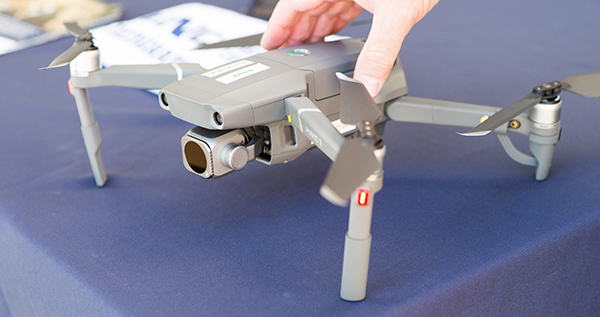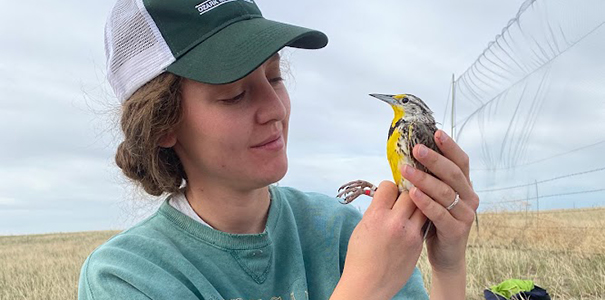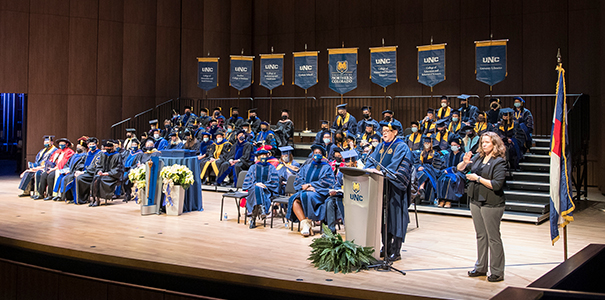
As the semester kicks off at the University of Northern Colorado, students and teachers alike are facing a unique menu of course delivery options. Even more unique, however, are some of the courses offered at UNC. Here are five such creative courses, offered this year at the University of Northern Colorado, that you may not have heard of before. These courses elevate career preparation and critical thinking — and the subject matter is just plain interesting. May you find yourself inspired to go learn something new!
HIST 264: Magic in Europe from Antiquity to the Enlightenment
A survey of magical thought and practice in Europe from Ancient Greece to the Enlightenment.
“On the surface, this course is about the theory and practice of magic from the Bronze Age to the twentieth century,” says Associate Professor of History Corinne Wieben, Ph.D. “Dig a little deeper, though, and the course is really about people and power: those who have it, those who want it, and those who want to keep it. As you can imagine, it gets pretty dramatic!”
Students will learn about mythical and historical figures including Greek goddesses, Queen Elizabeth’s court astrologer and alchemists hunting for the Philosopher’s Stone, as well as individuals accused of using magic and witchcraft.
“Students will benefit from this course by taking a deep dive into historical thinking, which helps us to ask and answer questions about humanity and about the changing structures of power that humans have built,” Wieben says. “Not only will we examine the ways in which changing political, social and gender norms affected how people thought about magic, we’ll also be looking at literature, science, religion, philosophy, medicine and the places where these disciplines intersected.”
Listen to Wieben’s podcast, “Enchanted,” which delves into the history of magic, sorcery and witchcraft: https://enchantedpodcast.net/
ESCI 150: Our Violent Earth
Examines the causes, effects and options available to respond to and potentially mitigate the effects of natural disasters such as earthquakes, volcanic eruptions, tsunami, landslides, severe weather and floods.
“This course covers the basics and importance of the physical sciences through the lens of major natural disasters, from earthquakes and tsunamis, to floods and tornadoes,” say the co-teachers of the course, Associate Professor of Meteorology David Lerach, Ph.D., and Professor of Earth Sciences Steven Anderson, Ph.D. “Since this is a course for non-majors, we pay special attention to how these natural disasters affect people from all walks of life.”
Students will learn about the causes of disaster events, explore ways to assess risk, prepare for future events and manage damage, all while learning to think critically about scientific concepts that affect us all.
The professors bring a wealth of personal experience to share: Lerach also teaches a storm-chasing course, and Anderson studies active volcanos around the globe.
BIO 336: Animal Plant Interactions
A survey of terrestrial plant-animal interactions with an emphasis on plant antagonistic and mutualistic interactions.
“Because plants are unable to move, they rely on signals such as chemicals, bright colors of flowers and fruits, and different shapes that make it easier for them to attract the right pollinators and fruit dispersers,” says Associate Professor of Biology Karen Gomez, Ph.D. “Plants offer rewards to their visitors by producing sweet nectar, water and nutrients. … At the same time, plants are not defenseless. They rely on physical defenses such as spines, hairs, hard fruits and toxic chemicals to protect their leaves and precious fruits.”
Students learn to connect concepts from various fields of scientific study, including evolution and ecology, as well as plant physiology and animal behavior, Gomez says.
“It is fascinating to discuss with students all these interesting and complicated relationships that exist between plants and animals,” Gomez says. “I also love the part about student presentations at the end of the semester. Students get to pick their favorite topic based on the primary literature and present it to the class.”
Communication and research skills developed in the class help prepare students for graduate school and employment.
GEOG 185: Introduction to Drones
This course exposes students to the fundamental concepts and geo-spatial utilization of drones (sUAVs). Students will learn the technologies, concepts and applications of drones.
“Students will learn to fly drones safely and ethically,” says Professor of Geography and GIS Jim Doerner, Ph.D. “Whether they fly their drones recreationally or professionally, they’ll benefit from this course. They’ll use image processing software and mapping technologies to create maps that can be used to analyze societal problems.”
In addition to learning the content needed to pass the FAA test to become certified as a commercial drone pilot, students gain skills for a variety of industries — Doerner quotes a projection that by 2025, there will be 100,000 new jobs in the unmanned aircraft industry. Drone technology is important in the oil and gas industry, landscaping and real estate, marketing, first responder operations and more.
“I’m most excited to see how students react to the first time they fly a drone,” Doerner says. “I know that the first time I was offered the opportunity to fly a drone, it was a little intimidating. However, once the drone was in the air safely, it was genuinely fun and empowering.”
ANTH 338: World Rebuilding
An introduction to how scientists reconstruct the world’s ancient habitats through paleoecology (studying fossil organisms and their environment).
“This course is all about the ways in which scientists reconstruct the world as it used to be,” says Assistant Professor of Anthropology Marian Hamilton, Ph.D. “What clues do we look for in the fossil record to tell us about past climates, environments, wildlife, and ecosystems? How do we put those clues together? … We can only understand our future by understanding our past. This course is a step in that direction!”
Students will learn about the ways the world is changing and will also learn to do reconstructions. Then they’ll take those skills and apply them to topics of interest, Hamilton says.
“Love dinosaurs? Human ancestors? The first life on land? We can use the methods in this course to explore topics throughout most of Earth’s 4.5 billion years, and watching students apply these tools to their favorite topics is so exciting,” Hamilton says.
--Written by Rebecca Dell
More Stories
-
Alumna Receives NSF Graduate Fellowship for Avian Conservation Research
Este artículo no está en español.
-
UNC Selects New Executive Vice President and Provost
Este artículo no está en español.
-
Doctoral Students Present Dissertation Projects in Three-Minute Competition
Este artículo no está en español.
-
UNC Graduate School Announces Student Awards for Fall 2021
Este artículo no está en español.





